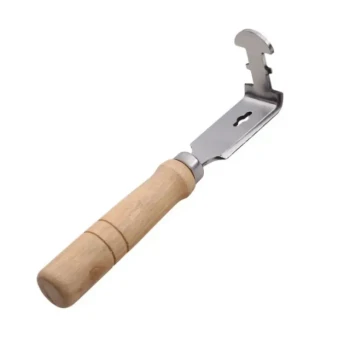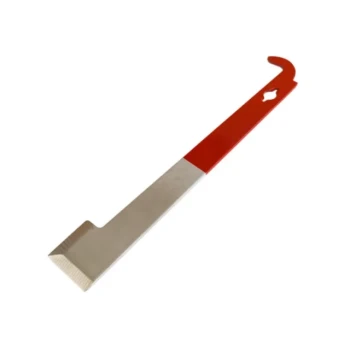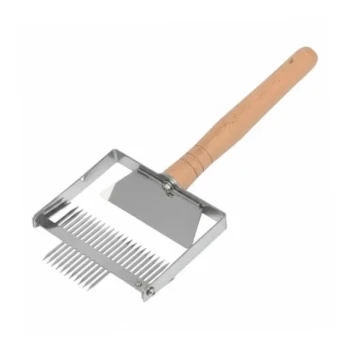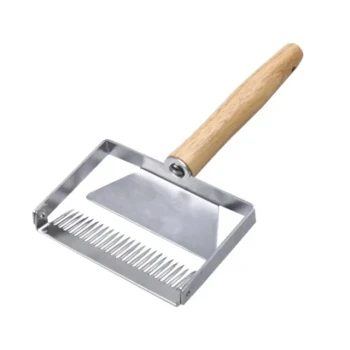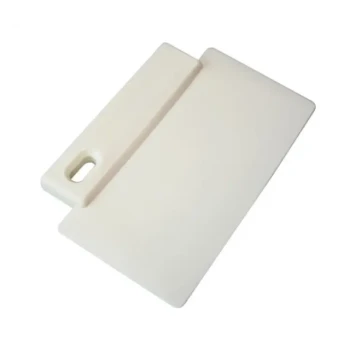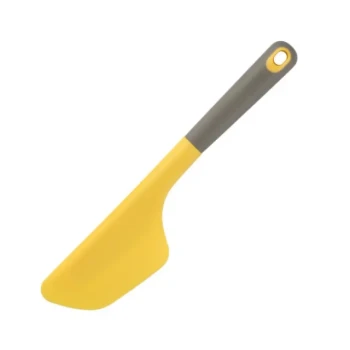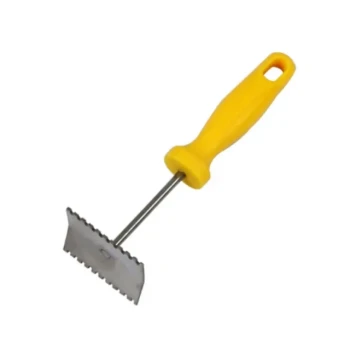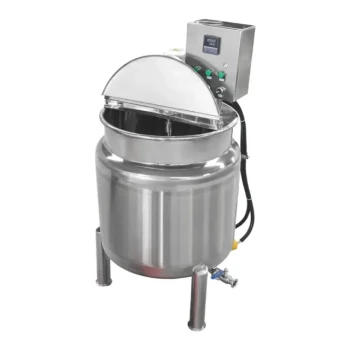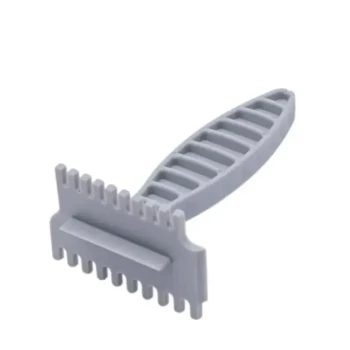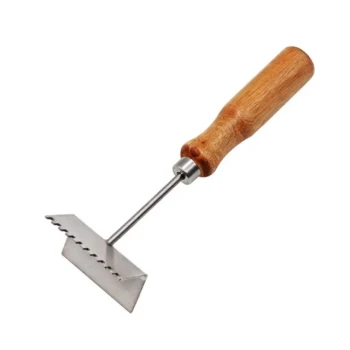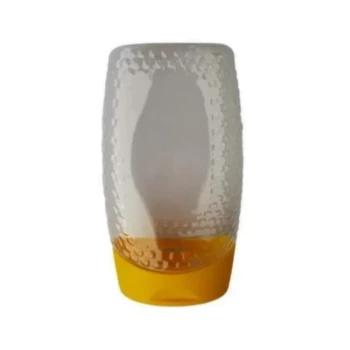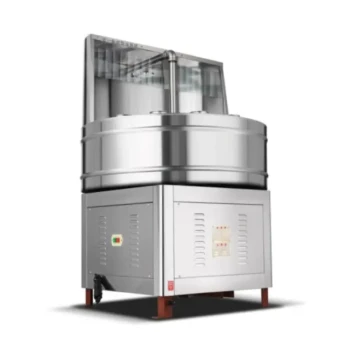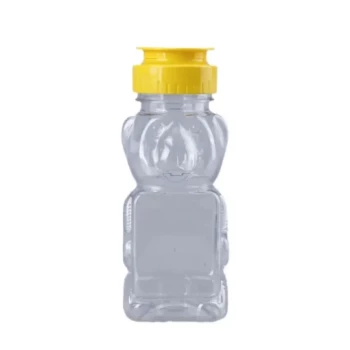The plant resins collected by honey bees are far more than simple glues. They are complex natural substances possessing a powerful combination of medicinal and structural properties. These include potent antibacterial, antifungal, antiviral, and anti-inflammatory characteristics, alongside physical traits that provide exceptional waterproofing and structural reinforcement.
Honey bees do not just use plant resin; they transform it into a substance called propolis. This material functions as both a sophisticated external immune system for the hive and a versatile engineering compound for construction and defense.

The Dual Function of Bee-Collected Resins
The value of plant resin to a honey bee colony can be understood through its two primary functions: providing a chemical shield against disease and acting as a physical material for construction and repair.
A Chemical Shield for the Colony
The most critical properties of these resins are antimicrobial. Their antibacterial, antifungal, and antiviral capabilities are essential for colony health.
Bees use this chemical shield to sterilize their living space, creating a clean environment that inhibits the growth of pathogens that could otherwise devastate a dense population living in close quarters.
The anti-inflammatory properties further contribute to the overall medicinal value of the resin, helping the colony manage its collective health.
An Engineering and Sealing Compound
Physically, the resins provide remarkable waterproofing and structural support. The sticky, pliable nature of the resin allows bees to work it into any gap or crack.
When it hardens, it becomes a durable, water-resistant sealant that protects the colony from rain and drafts, which helps regulate the hive's internal temperature and humidity.
Propolis: The Practical Application of Resin Properties
Honey bees mix the collected plant resins with their own saliva and beeswax to create propolis, often called "bee glue." This final product is where the raw properties of the resin are put to practical use.
Hive Sterilization and Hygiene
Bees meticulously coat the inside of the hive, particularly the brood cells where young are raised, with a thin layer of propolis. This creates an antiseptic environment for the developing larvae.
If a pest or intruder like a mouse dies inside the hive and is too large for the bees to remove, they will entomb the carcass in propolis. This mummification process prevents the body from decomposing and spreading disease throughout the colony.
Structural Integrity and Defense
The most common use of propolis is to seal small cracks and joints in the hive, reinforcing its structure and eliminating drafts.
Bees may also use propolis to reduce the size of the hive entrance. This makes the colony easier to defend against robbers and predators. The smooth, hard surface of propolis can even reduce wear and tear on the bees' delicate wings as they pass in and out of the hive.
Understanding the Trade-offs
While immensely beneficial, the collection and use of plant resins are not without costs to the colony. Understanding these trade-offs highlights the resin's true importance.
The Energetic Cost of Collection
Foraging for resin requires significant time and energy. Every trip a bee makes for resin is one it cannot make for nectar or pollen, the colony's food sources. The colony must balance its need for defense with its need for nutrition.
A Non-Nutritional Resource
Unlike nectar (carbohydrates) and pollen (protein), resin provides no direct nutritional value. Its sole purpose is medicinal and structural, making its collection a strategic investment in long-term health and security rather than immediate sustenance.
Making the Right Choice for Your Goal
Understanding the distinct properties of resin helps clarify why bees invest so much energy in collecting it.
- If your primary focus is hive health: Recognize that propolis acts as the colony's external immune system, leveraging antimicrobial properties to prevent disease.
- If your primary focus is hive construction and defense: Understand that resin's physical properties provide a waterproof, draft-proof sealant and a structural binder to fortify the nest.
Ultimately, honey bees transform raw plant resins into a multifunctional tool that is absolutely essential for their survival and collective well-being.
Summary Table:
| Property | Function in the Hive |
|---|---|
| Antibacterial & Antifungal | Sterilizes the hive, creating an antiseptic environment. |
| Antiviral & Anti-inflammatory | Supports colony health and disease management. |
| Waterproofing & Structural | Seals cracks, reinforces the hive, and regulates temperature. |
| Defensive | Reduces hive entrance size and entombs invaders to prevent decay. |
Equip Your Apiary with HONESTBEE
Just as honey bees rely on high-quality resins for a healthy hive, commercial apiaries and distributors need reliable, high-performance equipment for success. HONESTBEE supplies the essential beekeeping supplies and equipment your operation depends on.
Contact our wholesale team today to discuss your needs and discover how we can help your business thrive.
Visual Guide

Related Products
- Professional Stainless Steel Frame Cleaner with Ergonomic Wood Handle
- Wide Adjustable Stainless Steel Honey Uncapping Fork with Scraper
- Professional Stainless Steel J-Hook Hive Tool
- Stainless Steel Double Sided Honey Uncapping Fork with Scraper
- Extra Wide Stainless Steel Honey Uncapping Fork with Scraper Beekeeping Tool
People Also Ask
- Why is high-precision temperature control necessary for propolis extraction? Preserve Bioactive Potency Below 2°C
- How can chunks of propolis be processed into powder? Master the Freezing Method for Pure Propolis Powder
- What functions do thermostatic extraction vessels serve in propolis extraction? Optimize Bioactive Yield and Purity
- What are the steps to harvest propolis? A Guide to Sustainable Collection for Beekeepers
- Why are insect nets and improved filtration systems recommended for propolis? Ensure Purity and Safety in Production
- How is a propolis oil tincture made? A Guide to Crafting an Alcohol-Free Extract
- What is the primary purpose of using a 30-mesh screen during propolis extraction? Optimize Your Purification Flow
- How do professional beekeeping and harvesting tools affect the quality of raw propolis? Ensure Purity for Preservatives
